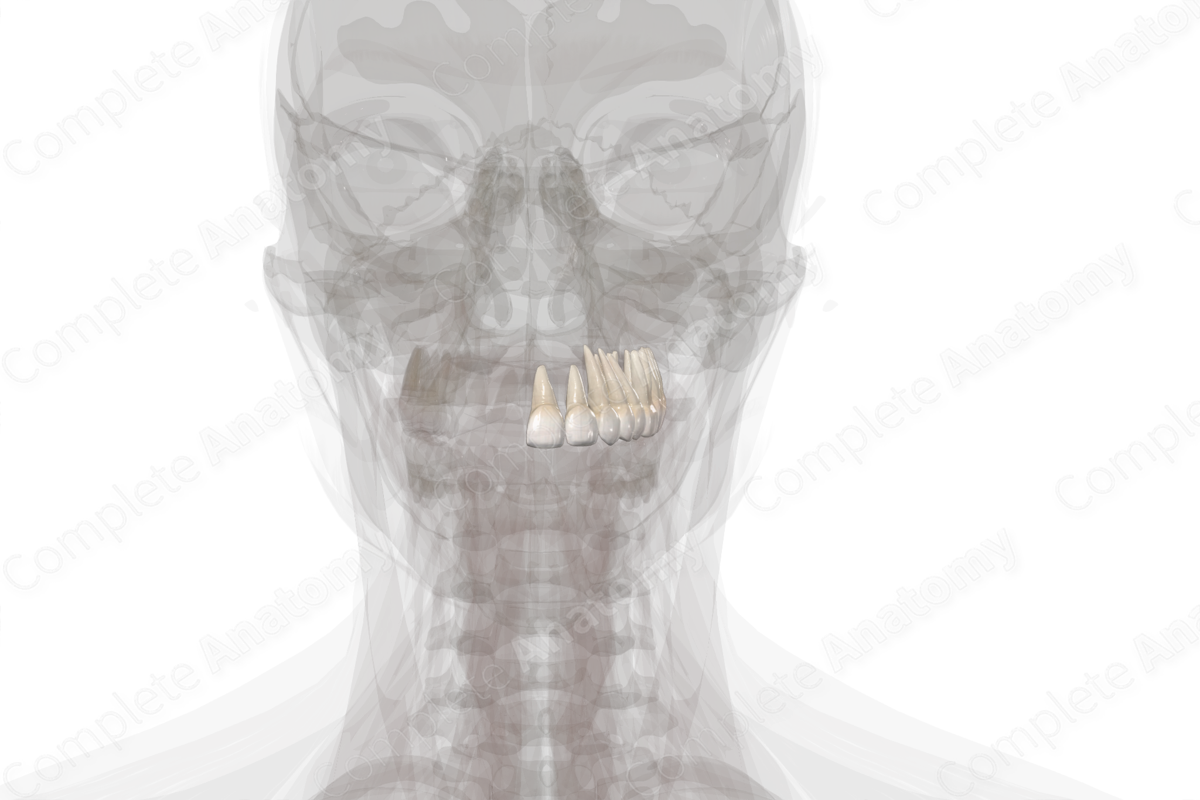
Description
In the adult permanent dentition, the maxillary dental arch consists of the sixteen superiorly located teeth that are embedded in the alveolar processes of the maxilla. The maxillary dental arcade is equally divided into left and right quadrants.
Based on their specific functional roles, there are three primary tooth morphologies in human dentition:
- incisiform teeth, which are the blade-like teeth that are specialized for the cutting (incision) of food;
- caniniform teeth, which are the sharp, pointed teeth that are specialized for the gripping (prehension) and tearing of food;
- molariform teeth, which are the teeth that have cusped surfaces and are specialized for the crushing or grinding (comminution) of food.
In the adult permanent dentition, each of the two quadrants of the maxillary dental arch consists of eight teeth:
- maxillary central incisor tooth;
- maxillary lateral incisor tooth;
- maxillary canine tooth;
- maxillary first premolar tooth;
- maxillary second premolar tooth;
- maxillary first molar tooth;
- maxillary second molar tooth;
- maxillary third molar tooth.
The incisor and canine teeth are collectively known as the anterior teeth, while the premolar and molar teeth are known as the posterior teeth.
Learn more about this topic from other Elsevier products





